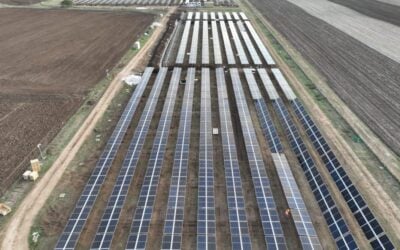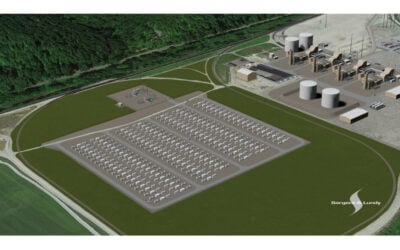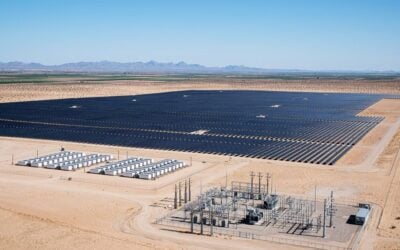
Battery storage and demand-side response have continued to play a crucial role in the UK’s power mix, together landing more than 500MW of contracts in the most recent T-1 Capacity Market auction.
Coal however faces an increasingly uncertain future after two feted plants were forced to exit the auction without a contract.
Enjoy 12 months of exclusive analysis
- Regular insight and analysis of the industry’s biggest developments
- In-depth interviews with the industry’s leading figures
- Annual digital subscription to the PV Tech Power journal
- Discounts on Solar Media’s portfolio of events, in-person and virtual
Just over 97.5MW worth of battery storage capacity has been procured from 16 separate projects in the first auction under which battery storage projects have been de-rated.
Those 16 projects to receive one-year contracts includes a number of installations backed by National Grid’s Enhanced Frequency Response tender in August 2016. VLC’s Cleator and Glassenbury projects have both been successful, as have Foresight’s duo of Nevendon and Port of Tyne.
E.On’s Blackburn Meadows battery will also be supported by a T-1 CM contract.
Those projects will now all be completed and operational given that EFR projects were to be connected prior to the end of February 2018.
However battery storage projects make up less than 2% of the capacity procured via the auction, with demand-side response (DSR) making up a further 7.45%.
Of the 430.5MW of DSR capacity procured the usual suspects of well-known aggregators: SmartestEnergy, Limejump, Kiwi Power, Endeco and Flexitricity have all been successful.
Gas has predictably led the way, winning 4.37GW – equivalent to just over three-quarters (75.6%) – of procured capacity in an auction that cleared at £6/kW per year.
But one of the most interesting stories to emerge from the T-1 provisional results is the fact that 2.8GW of coal-firing plants exited the auction, including the Eggborough and Drax Unit 4 plants, in what will be regarded as yet another sign of the looming end of coal in the UK.
The government has already signalled its prospective date and terms for the end of coal in the UK – effectively 1 October 2025 – but given the technology’s continuing struggles and dwindling influence in the UK power mix, a number of critics have questioned whether coal will even be economic by that date.
Commenting on this morning’s auction results Jonathan Marshall, energy analyst at the Energy and Climate Intelligence Unit, said that the lack of a CM contract could be the “final straw” for a “once-great power station” in Eggborough.
“It is yet another sign that old and polluting technology is losing out to demand side response and distributed capacity, at the same time as the capacity market clears at a record low price to ensure security of supply at low cost for homes and businesses. Coal-fired generation in the UK is in freefall, and more plant closures – as expected by the government – will see this continue.
“This result follows the news that coal generation in January 2018 – typically one of the most coal-intensive months of the year – is down by more than two-thirds compared to just one year ago. The terminal decline of coal power is coming at the right time, when ever-cheaper renewables are able to fill in the gap, and concerns about air pollution spread around the country,” he said.
Note: After this story was first published on 2 February at Clean Energy News, the owners of Eggborough Power Plant, the 2GW coal-firing plant in Yorkshire, confirmed that it is to close after failing to land a Capacity Market contract in the T-1 auction. The company said the plant would no longer be economically viable in the absence of a contract. It will continue to honour its existing contractual commitments which will take it until the end of September this year.






